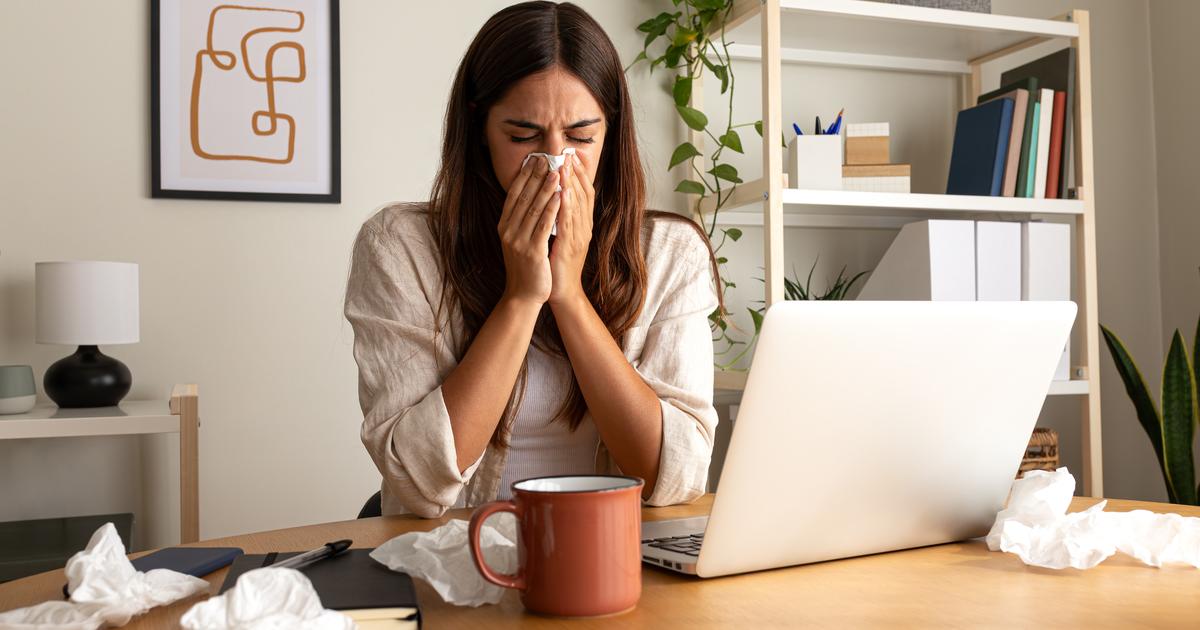Angelique Coetzee, in a 2008 file image.
At the end of November, a man in his 30s came to Dr. Angelique Coetzee's office in Pretoria, the South African capital, because he was unable to relieve an intense headache and body pain with medication. He explained that perhaps a physical overexertion that he had made a couple of days before was the cause, although he also felt as if he were going to fall into the flu, something strange being at the gates of the austral summer. As a preventive measure, Coetzee prescribed a PCR to rule out that he had been infected with the covid, without believing that he would test positive because the national incidence of the virus was only 2% of positive cases.
The following day, given the certainty due to the accumulated experience, Coetzee alerted the network of health physicians that includes 90% of the country's professionals that he had a patient who had tested positive, but that the result did not coincide with the variant delta.
It was the first known case of omicron in South Africa, which two weeks later —being the dominant variant in Gauteng province, the most populous in the country— registers more than 20,000 new cases per day (26.8% positivity).
Ask.
What is the current situation in your practice?
Answer.
What we are seeing are still cases of mild disease, half of the patients we see daily are testing positive for covid, among those who come with symptoms of contagion. At the moment, it is a situation that we can handle, from a health care point of view. They have mild symptoms of the disease and it is not necessary to send them to the hospital. Although the cases in hospitals are starting to grow. According to the data we have, those who end up in the hospital are unvaccinated people, although there are also a few who were vaccinated and have been infected, without knowing with certainty whether it is the omicron or the delta because, at the moment, they are not being facilitating this distinction in the data.
Q.
The latest figures point to a 200% increase in hospitalizations.
A.
Hospitals are not overcrowded, but we are heading into the holidays, and we know that people are not going to hear the warnings.
That is why we say that in the coming weeks we will have more cases and that it will be crucial with regard to severe cases, because regarding mild cases we are not registering significant changes.
More information
South Africa feels punished for helping to fight covid
Q.
Are they
detecting new symptoms, related to the omicron, or have they been able to confirm any initial theory regarding the new variant?
A.
They remain the same, most of the clinical symptoms are concentrated in headache, muscle pain and fatigue.
This is what patients complain about when they come to the consultation, and sometimes a blocked nose or a sore throat is added to that.
We do not see that they really have a fever, nor do we see anyone who needs oxygen in primary care, it is not even given when they are hospitalized.
What is happening in hospitals is that they come for another reason and when they do the test they are positive, but they did not go because they felt bad with symptoms of covid, that is why most do not need oxygen.
Q.
Is there a big difference in the reaction of those who are vaccinated and those who are not?
A.
Those vaccinated tend to have mild symptoms and experience less accumulation of pain, although we are also seeing mildly infected unvaccinated patients.
I must say that we classify a severe headache as a mild ailment, but for patients it is serious.
The muscle pain they feel too.
In general, the symptoms are much worse in those who are not vaccinated.
So I still think that vaccines protect: even if they do not prevent you from getting the infection, we are seeing that they do not get so sick.
Q.
How do you think the omicron variant will evolve?
A.
It is a difficult question.
What we are already verifying is that the omicron will remain in mild cases, with some serious ones, but the omicron will never be so serious, on the same scale of severe cases as the delta.
The delta variant was different and very dangerous.
Q.
With the data we have, is it possible to say that omicron is not that serious?
A.
Yes, it is not that serious because most of the cases that we are registering are minor.
But I am convinced that we will also have serious cases with the omicron.
People shouldn't misunderstand us when we say it's not that dangerous.
At this time, severe cases are not as severe as before.
With the delta I remember that, in the South African Medical Association, in the third week we asked the Government to start closing schools and public places because people were very sick.
That is not happening now.
Q.
Why are you sure that there will also be serious cases with the omicron?
R.
Because of the type of infection it is, SARS causes inflammation in the respiratory system.
What happens if you are not vaccinated is that your immune system does not have the ability to defend itself, especially if you have comorbidity.
And that's how it started in the public hospital sector, the first admissions were mainly young men with some additional disorder or disease not vaccinated.
Q.
What recommendations would you give to avoid getting the omicron at this time?
R.
It is important that people continue to wear the mask, a good one, of good quality, and if it is reusable, wash it every day, not use dirty masks, stay away from groups of more than 15 people and get the vaccine or booster following the indications of the Ministry of Health.
Q.
How are you coordinating to share data and provide verified information?
Have you forced the omicron to create a faster system, in real time?
R.
We have a network of doctors who are treating patients on a daily basis, we work closely with associations and institutions that collect the data.
90% of the general practitioners in the country belong to the network and what we are seeing are mild symptoms ... We communicate, ask questions and observe if something is changing from a clinical point of view, or if there are more hospitalizations, which does not seem .
Some doctors are referring patients to the hospital, but it is a really low number.
Q.
How do you feel being the first doctor to alert about the omicron?
A.
I am happy that I was able to realize with the patient I saw that day that there was something different.
That is what the experience of many years gives you, the practice.
It was very interesting how when checking the patient's diagnosis that morning, he looked at my face and I felt like he was in a state of shock, because I knew immediately what it meant.
Now we are better, calmer, because we are being able to analyze it.
Q.
Did those first patients you see from the omicron recover quickly?
A.
Yes, they were all mild.
Of the 70 that I have been able to attend these days, I have not sent even one of them to the hospital.













/cloudfront-eu-central-1.images.arcpublishing.com/prisa/Z45E6KV7VJGUXAKJWH7VA4NJSE.jpg)

